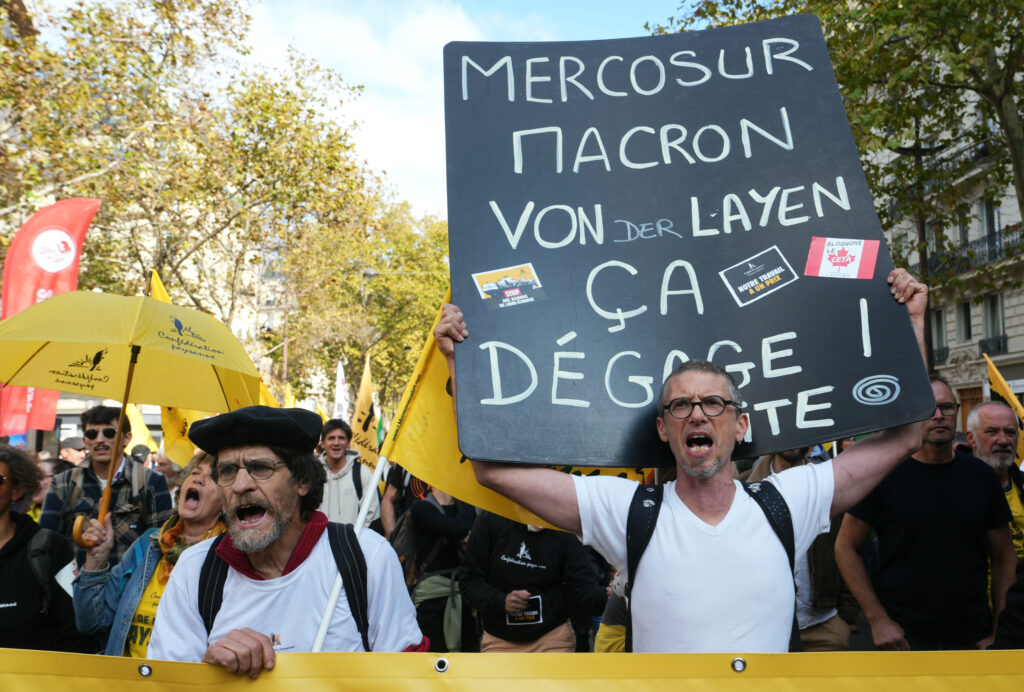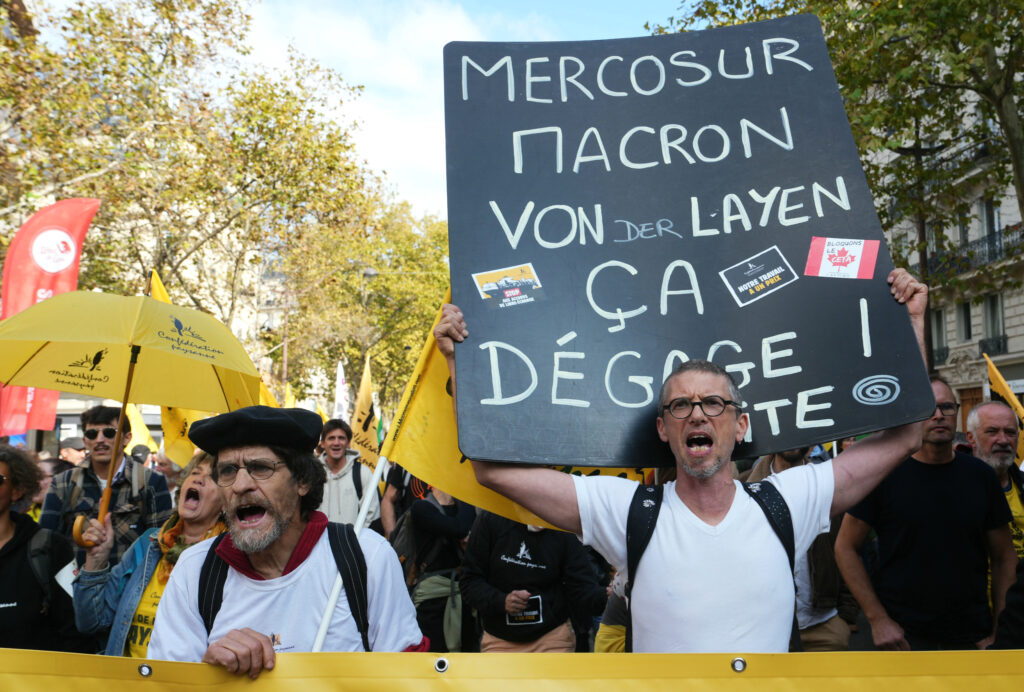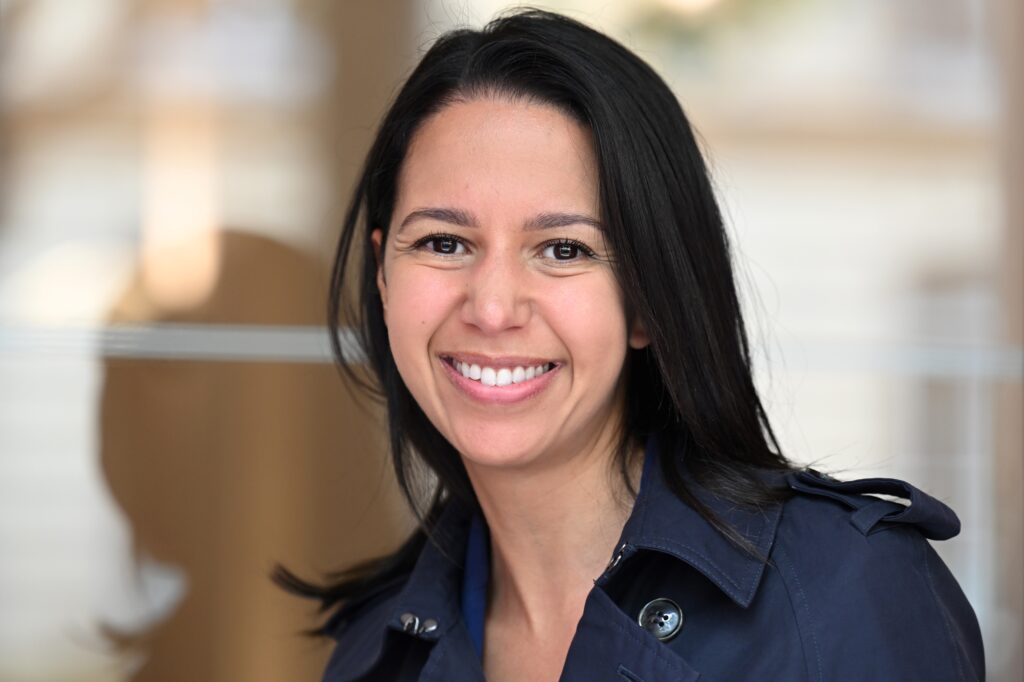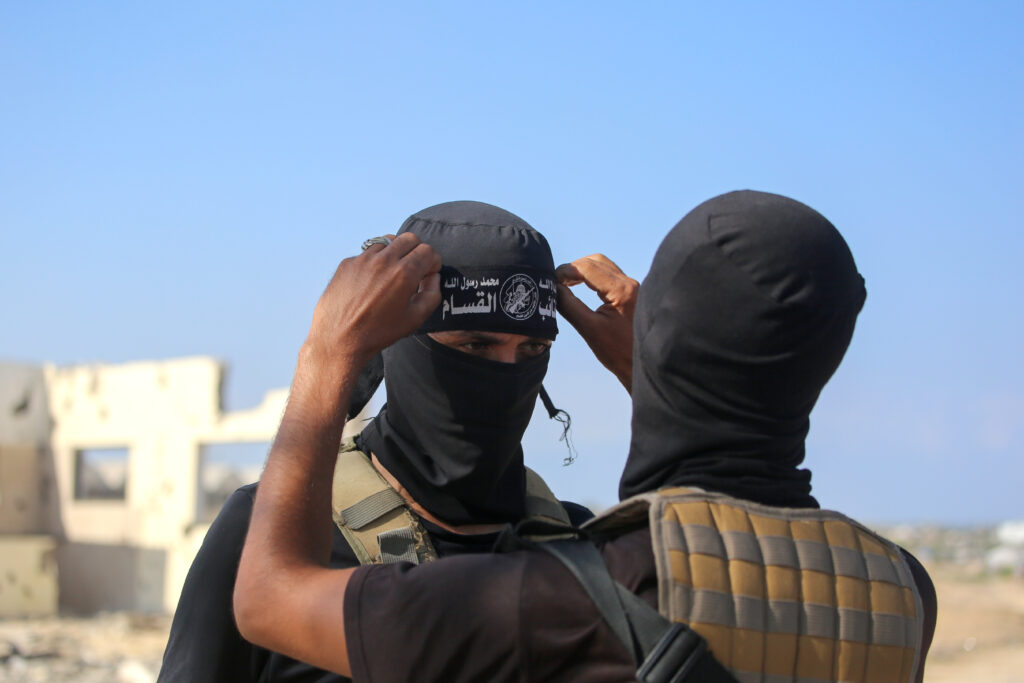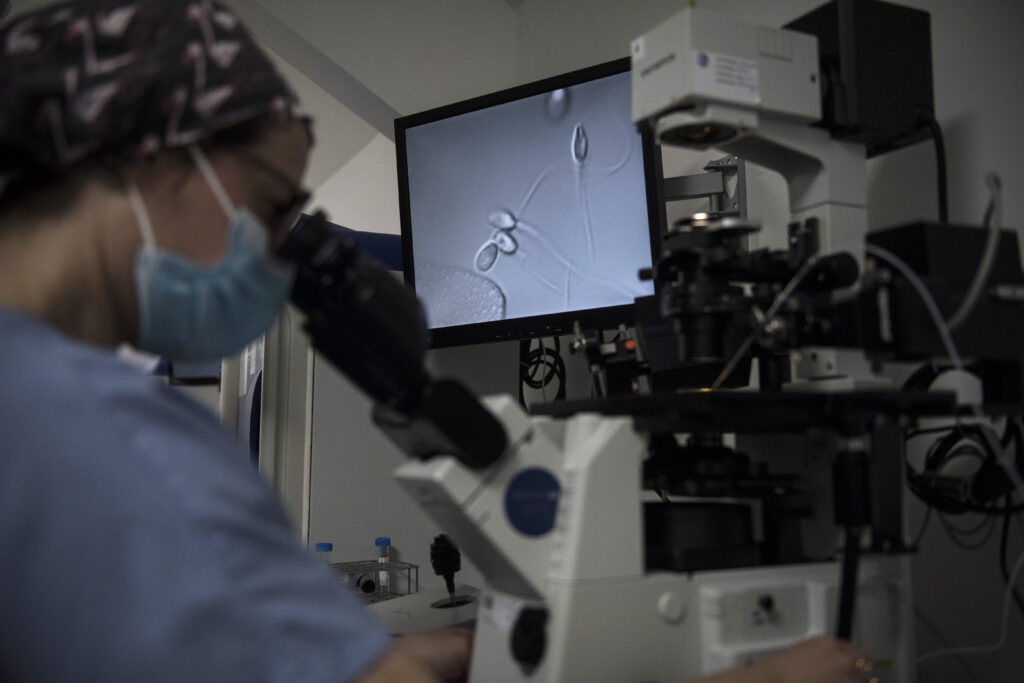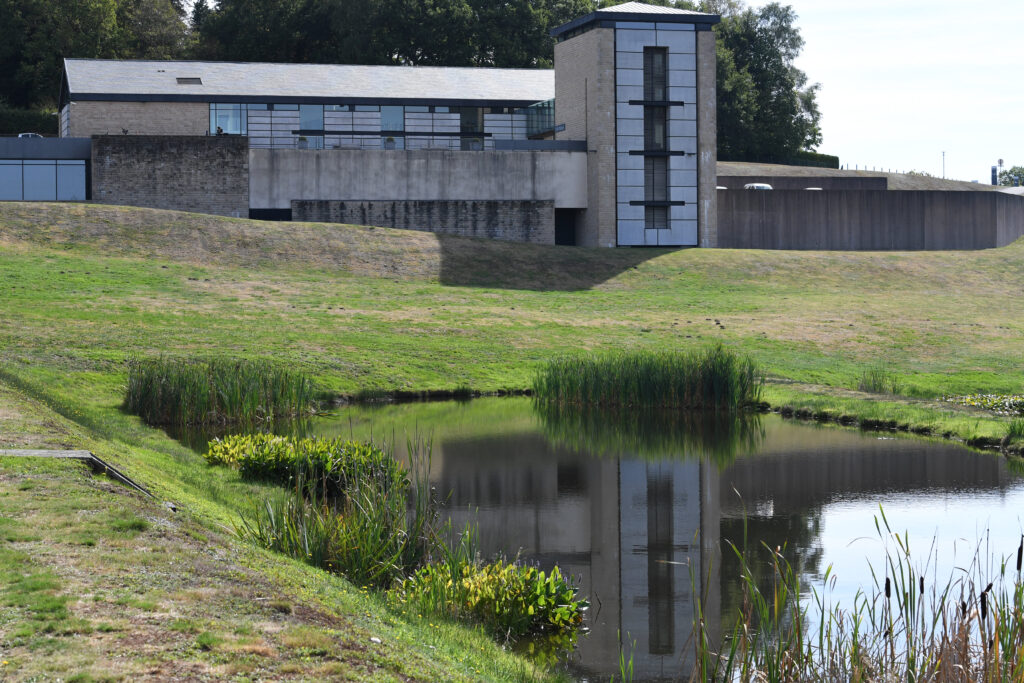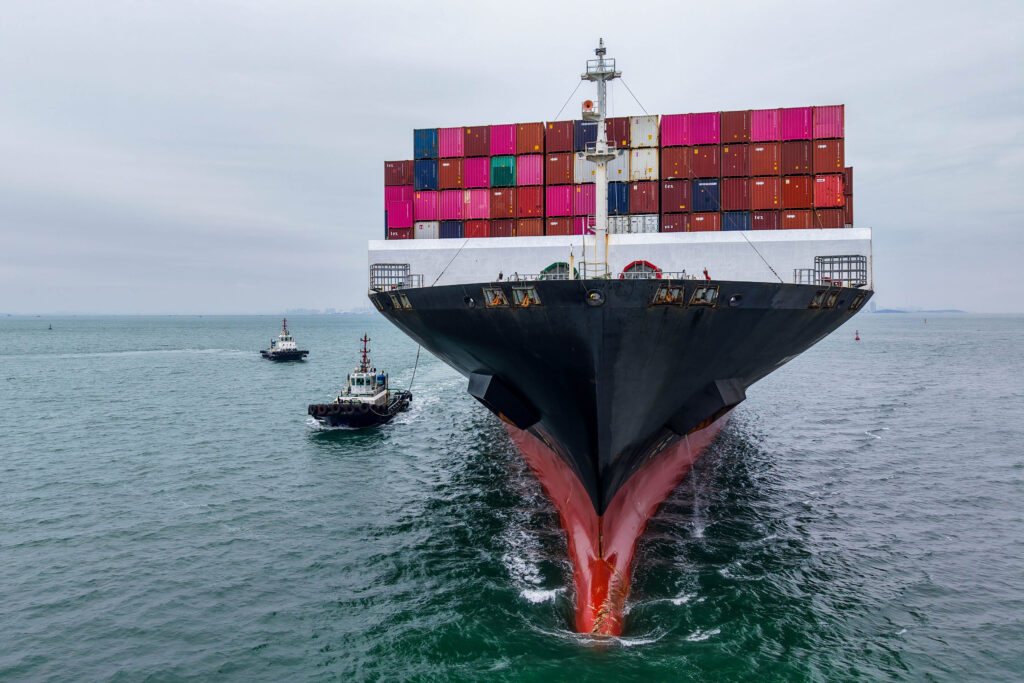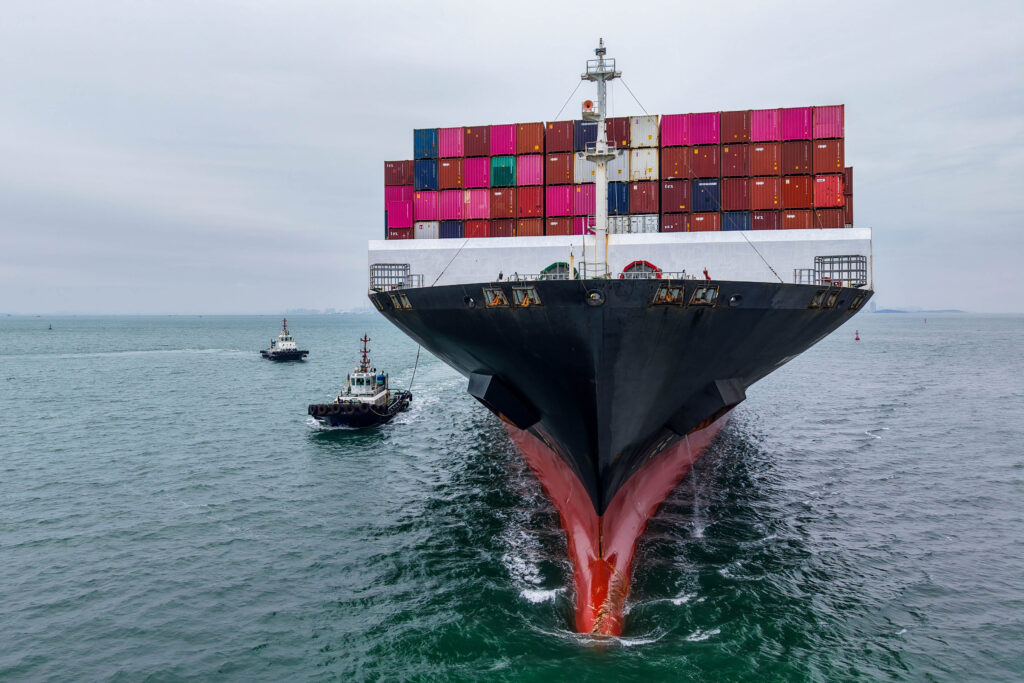Pour la Confédération paysanne, l’accord UE-Mercosur c’est toujours “non”
“Mortifère pour les paysans”: la Confédération paysanne organise mardi à Paris une mobilisation contre le projet d’accord entre l’UE et des pays du Mercosur, et appelle le président Macron à “tenir son engagement” pour protéger les agriculteurs.Le 3e syndicat agricole français, rejoint par plusieurs dizaines d’associations et collectifs, appelle paysans, défenseurs de l’environnement ou des consommateurs à se rassembler sur l’Esplanade des Invalides à 12H30 pour défiler, avec quelques tracteurs et en musique, jusqu’aux pieds de la Tour Eiffel.Tous les syndicats agricoles français sont fermement opposés à cet accord entre l’Union européenne et quatre pays latino-américains du Mercosur, dont Bruxelles a lancé début septembre le processus de ratification et à l’égard duquel la France, hier très opposée, semble depuis se montrer moins défavorable.Cet accord, sur la table depuis des décennies mais signé fin 2024, doit permettre à l’UE d’exporter davantage de voitures, machines, vins… Mais il facilitera aussi l’entrée de bœuf, volaille, sucre, miel… via des droits de douane réduits.”C’est un accord qui va déstructurer notre souveraineté alimentaire, qui favorise la mise en compétition et donc la politique du moins-disant”, a affirmé Stéphane Galais, un des porte-parole de la Confédération paysanne lors du Sommet de l’élevage, en Auvergne, mardi dernier.”A l’heure actuelle, où les enjeux climatiques n’ont jamais été aussi forts, comment on peut imaginer encore défendre le fait d’échanger des voitures, du service contre notre alimentation”, avait-il demandé.Pour le syndicat, héritier des luttes paysannes altermondialistes et historiquement opposé aux traités de libre-échanges, “c’est un non ferme et définitif”.La Confédération paysanne appelle Emmanuel Macron à “tenir son engagement”, rappelant que le chef de l’Etat avait, lors du dernier Salon de l’agriculture en février 2025, fustigé “un mauvais texte” et promis qu’il ferait “tout pour qu’il ne suive pas son chemin, pour protéger cette souveraineté alimentaire et européenne”. Pour tenter de rassurer la France, la Commission a proposé début septembre des clauses de sauvegarde “renforcées”, en cas de brusque hausse des importations ou baisse des prix, avec un “suivi renforcé” des “produits sensibles”.Mais pour le syndicat, ni “clauses de sauvegarde”, ni “clauses miroir miracles” ne sauraient garantir un rééquilibrage de cet accord.Alors que l’alliance FNSEA-Jeunes-agriculteurs, première force syndicale agricole, avait mobilisé ses troupes contre le Mercosur fin septembre, la Confédération paysanne a choisi la date du 14 octobre en soutien à deux de ses membres, jugés dans l’après-midi au tribunal judiciaire de Paris.Ces deux militants syndicaux comparaissent pour “violence et rébellion” en lien avec une manifestation contre une réunion européenne de grands acteurs du commerce des céréales organisée au Grand Palais en décembre dernier.
